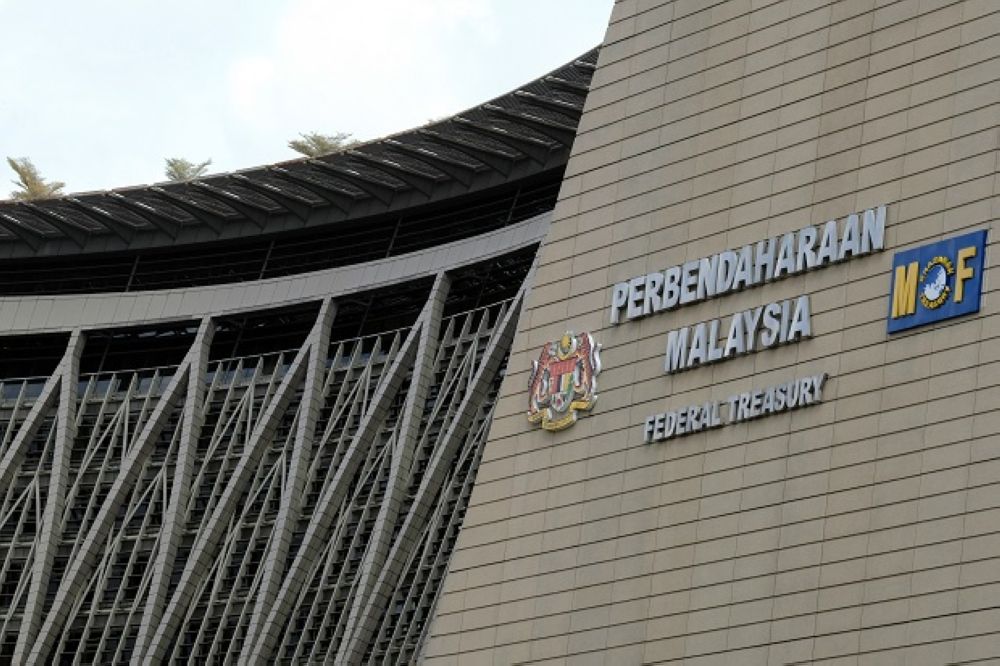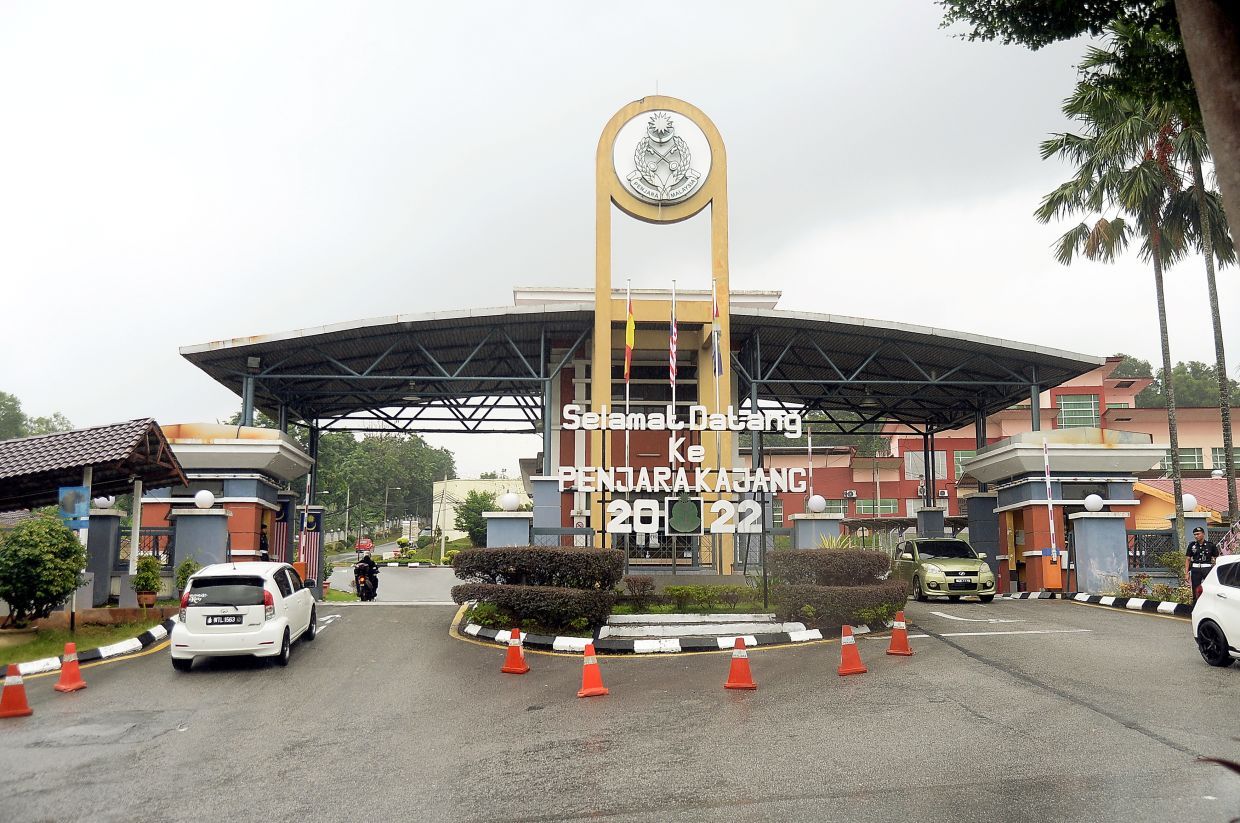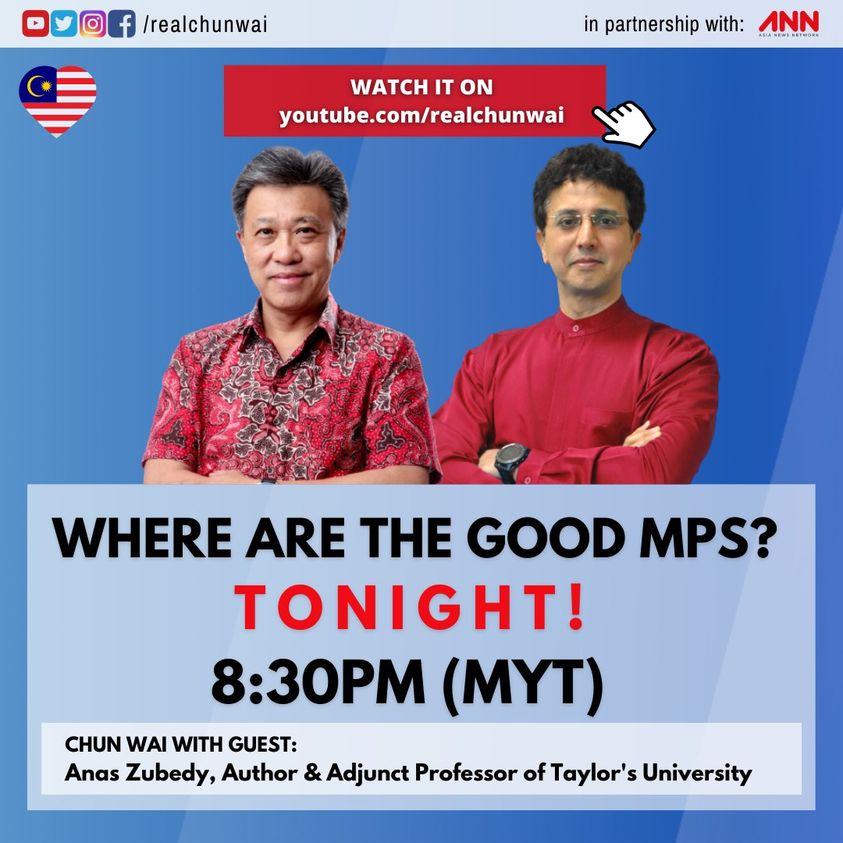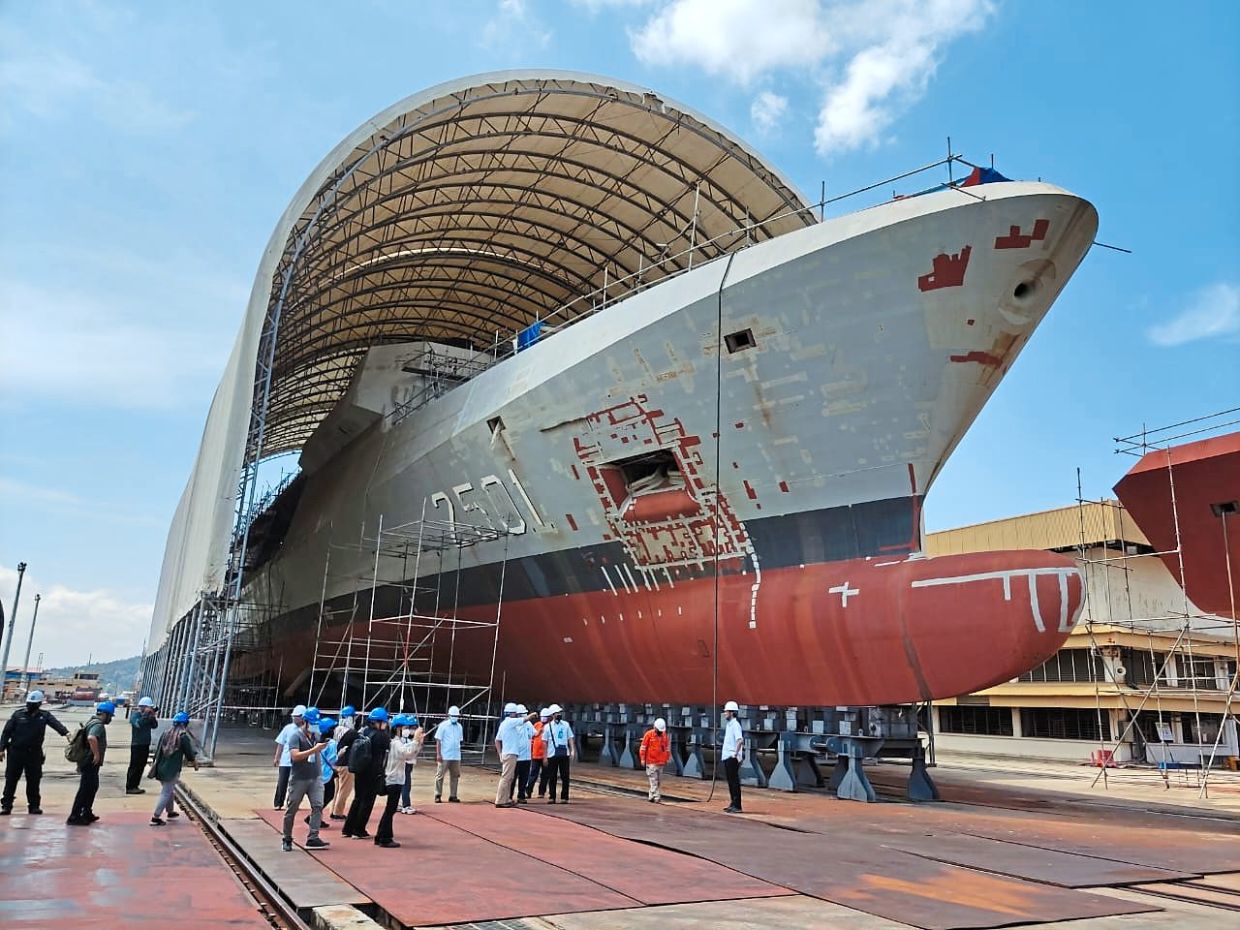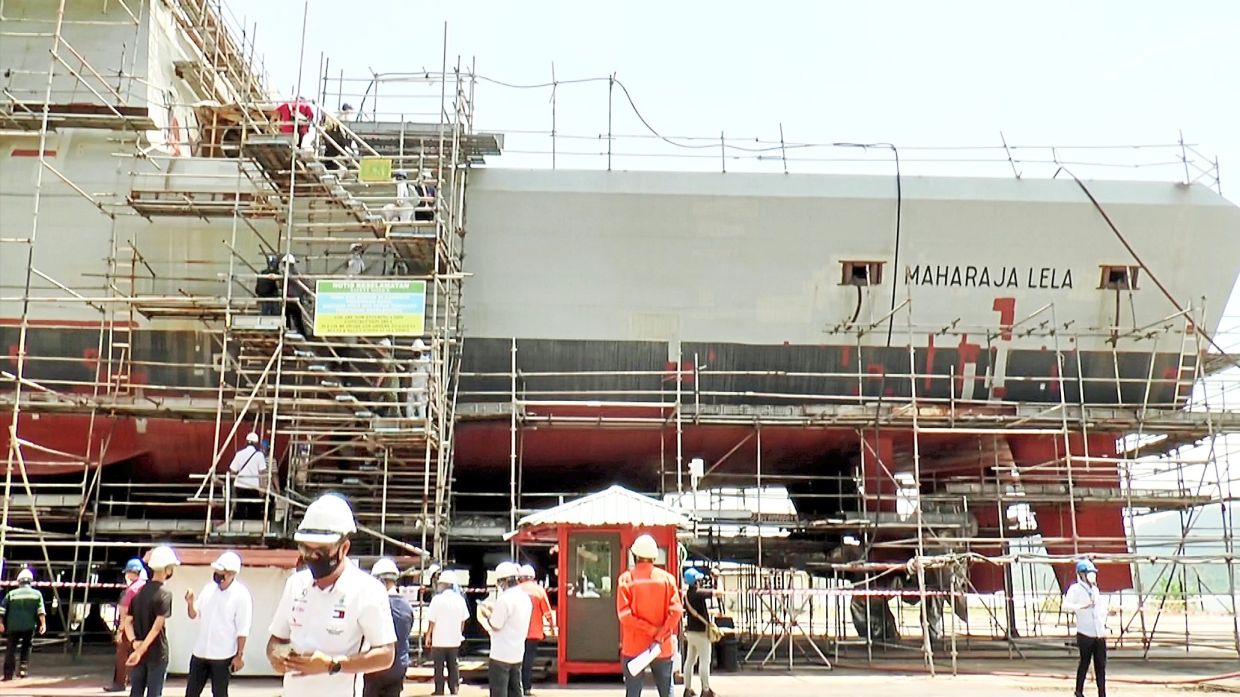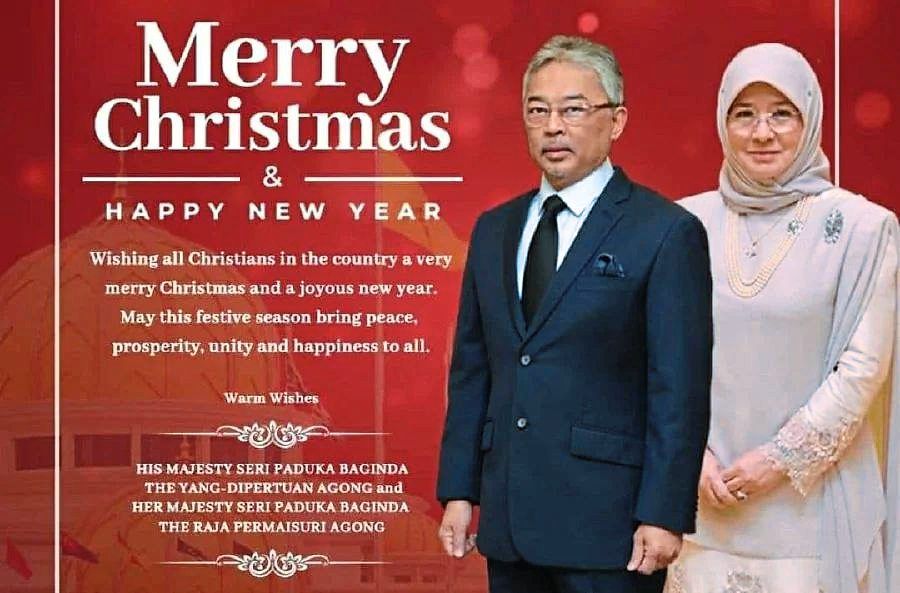
Leading the way: Their Majesties the King and Queen have openly wished Christians Merry Christmas annually when the greeting has been questioned by some who claim it should be prohibited. – Istana Negara Facebook page
IT may seem odd that the institution of the Malay Rulers, whose origins can be traced back to the early 15th century, is today the most progressive voice. At the other end of the spectrum are our politicians, who often fumble and stumble, or worse, stay silent when their opinions are most needed.
The senior Sultans have instead, always spoken up and on many occasions, even reminded religious figures that Malaysia is a multi-ethnic country, and that diversity must not just be respected but embraced.
The powerful underlying message is – the Rulers are the heads of Islam in their respective states, which is clearly defined in the Federal Constitution.
The Religious Minister, federal religious agencies, local government and politicians, who also double up as theologians, are not the leaders of the religious order.
As the country ushers in its national day on Aug 31, it can’t be denied that many Malaysians are concerned, if not disturbed, by the direction our beloved country is taking.
The bickering politicians in the divided coalition have not imbued confidence with a leadership that is seemingly uninspiring and incapable of providing hope.
Leading up to the 65th National Day, the current political mood has dampened spirits in this country.
Race, religion and corruption have continued to dog and drag this country down, even though our founding fathers, Tunku Abdul Rahman, in particular, built it on a foundation of unity and hope.
He led a delegation of leaders reflecting Malaya’s multi-ethnicity to London for talks, and his first Cabinet was also clearly diverse.
Tunku incessantly said it, including in his popular column, “As I See It,” in The Star in the 1980s, that Malaysia is a secular country.
But fast forward to 2022, when certain religious groups and individuals have continued to push their hard-line religious agenda, yet nearly no political figures, be it in government or opposition, have voiced their positions or concerns.
Many Malay politicians, in fact, choose to compete among themselves by showing off their religious credentials or looking the other way and remaining silent in the face of far-reaching religious assertiveness. They even cast a blind eye when secular structures – which are part of a pillar of the 1957 Federal Constitution – are challenged.
After all, there’s an impending general election, so why risk incurring the wrath of the biggest bank of the electorate, the predominantly Malay-Muslims.
The Group of 25, comprising prominent moderate Malays, seems to be the only entity prepared to voice its stand on the changing religious climate and the need to uphold the Federal Constitution and Rukunegara.
To put it bluntly, a system that seems feudal and dating back to the Melaka Sultanate has proven to be reliable, adaptive, and engaging, even in modern day Malaysia.
Leading the way have been Their Majesties the King and Queen, who have openly wished Christians Merry Christmas annually when the greeting has been questioned by some who claim it’s an expression with Christian connotations and should be prohibited.
As for the individual states, three Sultans in particular, the Sultans of Selangor, Johor and Perak – have consistently voiced their sense of moderation by reassuring Malaysians, especially non-Muslims, that their interests are protected. While they are Malay Rulers, they are also the Rulers for all Malaysians.
The Sultan of Perak, Sultan Nazrin Muizzuddin Shah, is surely the champion of diversity with a strong commitment to differing views and opinions. His Royal Highness has also shared his concerns many times on the ills of corruption. His speeches are well-researched, and his articulate delivery is top notch.
Meanwhile, Sultan of Selangor, Sultan Sharafuddin Idris Shah, has taken to task politicians who use Islam to stop cultural events like Bon Odori, and he has also banned politicians from preaching in mosques in Selangor.
His logical decree, which became effective Jan 1, was aimed at preventing Islam from being politicised and misused by politicians in mosques and suraus, potentially leading to slander, friction, and division among Muslims.
In the case of the Sultan of Johor, His Majesty is someone who doesn’t mince his words.
In 2017, he condemned a launderette in Johor for adopting a Muslim-only policy, saying Johor “is not a Taliban state” and that the state “belongs to all races and faiths.”
Sultan Ibrahim Ibni Sultan Iskandar, in statements in 2015 and 2017, even went further by saying the state had cut off ties with the powerful federal government’s Jakim (Department of Islamic Development Malaysia) and questioned why it needed RM1bil for its annual budget.
His Majesty has also made his clarion Bangsa Johor call a popular one, which has resonated well with Johoreans.
Certainly, the rationality of these Rulers has provided a ray of hope to Malaysians who believe that moderation is still possible, and that none of us should cede territory to extremists from any religion or race.
Politicians come and go. Their interests are short-term, which is usually to win in an election, but our Rulers are here to stay, regardless of which political party or coalition is in charge.
It’s incredulous that Tun Dr Mahathir Mohamad is still talking about a so-called “new concept,” and a “new movement” called Gerakan Tanah Air, which is based on Malay and Islamic agendas.
When one hears of such a political narrative, it clearly indicates there has been no flourishment of new political ideas.
At least our founding fathers were far-sighted. Interestingly, when one reads the Federal Constitution, it consistently uses the term “The Rulers” and never “the Malay Rulers.”
Happy National Day and Daulat Tuanku.
